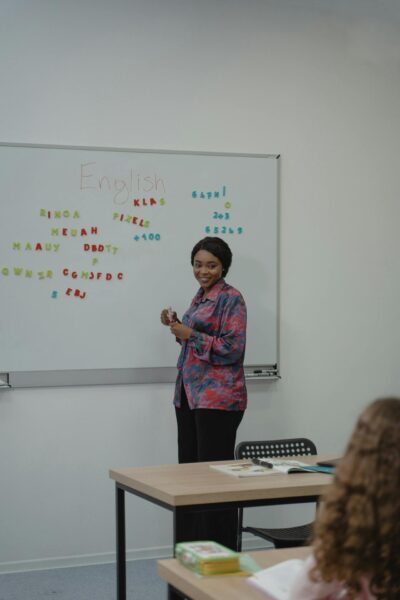Lesson planning is the backbone of effective teaching, ensuring that every class is purposeful, engaging, and aligned with educational goals. A well-crafted lesson plan can transform a classroom into a dynamic learning environment, whether you’re a seasoned educator or just starting out.
We’ve put together some tips to help you master lesson planning and make your teaching experience even more rewarding.
Why Is Lesson Planning So Important?
- Provides Structure: A well-crafted plan maps out what and how you’ll teach, ensuring you cover all the essential material in a smooth, organised way.
- Enhances Learning: Thoughtfully planned lessons engage different learning styles, keeping students excited and motivated.
- Saves Time: Clear plans minimise improvisation, making transitions between activities seamless and efficient.
- Increases Confidence: Knowing what’s next helps you manage your classroom with ease and assurance.
- Addresses Individual Needs: Allows you to thoughtfully adapt your teaching to cater to each student’s unique learning requirements.

Tips for Effective Lesson Planning
Start with Clear Objectives: Begin each lesson plan with clear, concise learning objectives. What do you want your students to know or be able to do by the end of the lesson? This clarity helps focus your teaching and ensures that both you and your students understand the goals of the lesson.
Know Your Students: Tailor your lesson plans to meet the needs of your students. Consider their interests, learning styles, and any special needs. Differentiated instruction can help ensure that all students are engaged and learning effectively. Knowing your students also means being aware of their prior knowledge and experiences, which can be leveraged to make new content more relatable and understandable.
Plan Engaging Activities: Include a variety of activities to cater to different learning styles. Interactive activities, group work, hands-on projects, and multimedia presentations can make learning more dynamic and enjoyable. You can also use technology to enhance learning. Interactive whiteboards, tablets, and educational apps like LiteracyPlanet can make lessons more interactive and help engage students with gamified content.
Want to see how easily LiteracyPlanet can fit into your lessons?
Sign up for a free 30-day trial or reach out to our fantastic customer care team—we’re here to answer all your questions!

Be Flexible: While it’s important to have a plan, be prepared to adapt if things don’t go as expected. Flexibility allows you to respond to students’ needs and make the most of teachable moments. Sometimes the best learning experiences come from unexpected directions, so being open to adjustments can enhance your teaching.
Reflect and Revise: After each lesson, take some time to reflect on what went well and what could be improved. Use this feedback to refine your future lesson plans. Reflection is a powerful tool for professional growth, helping you continuously improve your teaching strategies and better meet the needs of your students. And don’t forget: the more you do it, the easier it gets! Before you know it, you’ll be effortlessly building on your past lesson plans, and creating new ones will feel like second nature.
Create a Positive Learning Environment: Your lesson plans should also consider the classroom environment. Establish clear expectations, create a welcoming atmosphere, and build strong relationships with your students. A positive learning environment fosters engagement and makes students feel valued and supported.

Incorporate Assessment and Feedback: Include formative assessments in your lesson plans to gauge student understanding and adjust your teaching accordingly. Regular feedback helps students know where they stand and how they can improve. LiteracyPlanet, for example, provides tools for tracking progress and offering constructive feedback, making it easier to monitor and support student growth.
Connect Lessons to Real-World Applications: We all know that learning something without seeing its purpose can feel pretty dull. That’s why making learning relevant by connecting lessons to real-world applications is super important. This helps students see the value in what they are learning and how it applies beyond the classroom. Real-world connections can also spark curiosity and motivate students to engage more deeply with the content.
Utilise Collaborative Planning: While you might feel alone sometimes, this job has been done by many around you! The curriculum doesn’t change much year on year, and you could learn from lessons that are already being taught. Don’t be shy, you are all on the same boat and there’s nothing more empowering than a team working together. Connect with teachers on Facebook groups and other social channels. You can start by sharing some of the tips you’ve found, or even this very blog!







